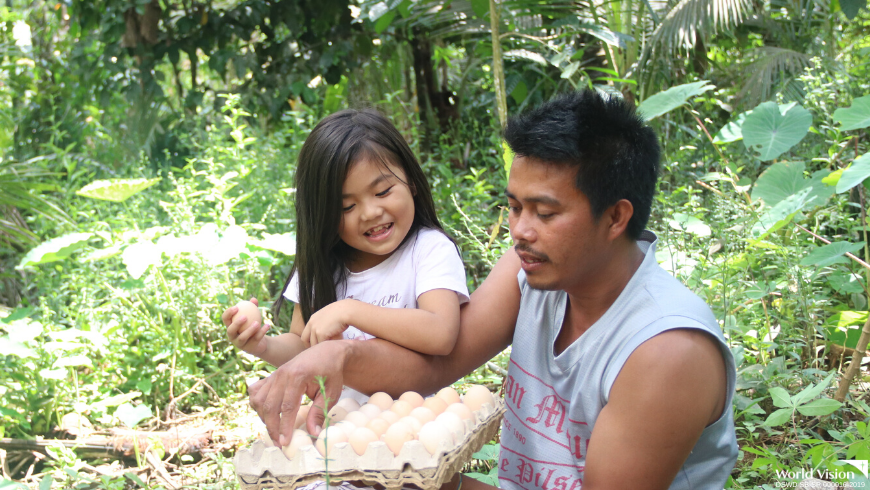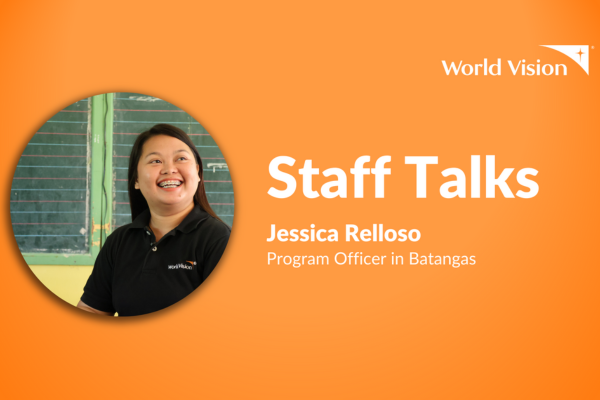How your sponsorship is supporting other children who are not yet sponsored
Every day, 6-year old Charmaine would join his father Richard in visiting the native chickens they received from World Vision a year ago. “I love riding Papa’s motorcycle and joining him wherever he goes, even when feeding the chickens,” she smiles.
The number of their chickens has now increased. From 10, they currently have 28 that give them at least 10 eggs every day. They also have more than 100 chicks – some they grow and some they sell.

“This is a big help to us, especially in supporting the needs of my two girls, Charmaine and Chelsea,” he adds.
Although Charmaine does not yet have a sponsor, her family is able to benefit from World Vision’s programs like the native chicken raising, thanks to World Vision’s sponsors whose monthly donations are pooled to fund long term community development projects. Because of community-focused solutions, for every child sponsored, four more children benefit, too. In the last three years alone, through the sponsorship of more than 74,000 vulnerable children by 16,000 child sponsors, and with the help of different stakeholders, a total of 2.9 million children benefitted from World Vision’s child-focused and community empowering interventions in the Philippines.
Sustainability and giving back
To further help Richard and the community, World Vision provided an incubator and a hatcher while the barangay lent a building for the growers to use.
“There was an agreement with all the families to organize a native chicken growers association to ensure that the resources given to them are well-managed. We’ve emphasized the role of the barangay local government in monitoring the project. All families also agreed that after a year, they would have to give back 10 native chickens so that other families would also benefit,” says Samuel Ocon, World Vision’s Program Officer in Kidapawan City in North Cotabato, Mindanao.
“To date, 15 of the first 50 families to receive the native chickens have complied to the agreement and others are expected to give back in the next weeks,” shares Adonis, president of the association. He adds that the hatcher and incubator, managed by the association, are also used by other members of the community who are not under World Vision’s sponsorship program. Anyone who uses the facilities would have to pay Php6 (Php3 only if the egg will not hatch), the money from which is used to pay for maintenance and electricity.
Richard shares, “We pay it forward and I’m glad that the 10 chickens I have given back, are now with another family, whose children will surely benefit.”
Along with his fellow native chicken growers, Richard also gives at least four pieces of his harvested eggs to the barangay. Together, they are able to donate at least 150 eggs every month, which are used by the health center for its feeding program to malnourished children under two (2) years old. Such initiative has so far helped reduce the number of malnourished children from 21 in 2018 to 11 in 2019.









